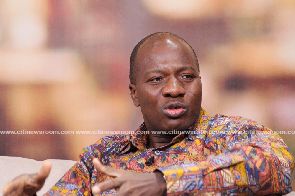
Following reports of a possible increment in the Value Added Tax (VAT) rate and the National Health Insurance Levy (NHIL) in the mid-year budget review, Member of Parliament for Bawku Central, Mahama Ayariga has cautioned the New Patriotic Party (NPP) government against breaking its promises to Ghanaians.
[ads1]A report by a pro-NPP newspaper, The New Statesman had suggested VAT and NHIL may be increased from 17.5 percent to 21.5 percent.
Some individuals, including former President John Dramani Mahama, have since raised concerns over the rumoured increment, arguing that the new taxes would cripple businesses further and also defeat President Nana Addo’s much-touted mantra of “from taxation to production.”
Mr. Ayariga on Citi FM‘s News Analysis Programme, The Big Issue, sided with this position, saying government will breach its promise of scrapping “nuisance taxes” by effecting the increment.
He, therefore, asked government to stick to its earlier position of scrapping “nuisance taxes.”
“The NPP as a political party had a clear position on taxes. It described them as nuisance, it described them as unnecessary and said Ghana had so much money and it could be used to develop the country. The first year, they lined up taxes and executed them. Scrapped, reduced and did all sort of things to give the impression that the position that you do not need many taxes is indeed true. Today, we are hearing rumours. The simple thing I want to say is we must be careful about breaking our promises to the people.
“Those of us in the political class are behaving in ways that are corroding our very credibility to a point where I believe we will lose total legitimacy because when you keep breaking your promises to the population, the very thing that binds government with the government, which is confidence, is destroyed and you lose legitimacy.”
The Minister of Finance, Ken Ofori Atta, in his 2017 Budget Statement and Economic Policy announced the abolition of some taxes as promised by the Akufo-Addo government.
Mr. Ofori-Atta had explained that, although some of those taxes were introduced by the erstwhile National Democratic Congress (NDC) government to raise revenue, they had proven to be unprofitable means of raising money, and had rather become a burden to the private sector, stifling their development.
Parliament subsequently approved four amendment Bills to scrap the taxes as proposed in the 2017 budget.
The Bills were the Income Tax (Amendment) Bill, Special Petroleum Tax (Amendment) Bill, Special Import (Amendment) Bill and Customs and Excise (Petroleum Taxes and the Petroleum Related Levies (Repeal) Bill.
Below is the list of taxes that were abolished and reviewed by the government
Abolished
– 1 percent Special Import Levy;
– 17.5 percent VAT/NHIL on financial services;
– 17.5 percent VAT/NHIL on selected imported medicines, that are not produced locally;
– Initiate steps to remove import duties on raw materials and machinery for production within the context of the ECOWAS Common External Tariff (CET) Protocol;
– 17.5 percent VAT/NHIL on domestic airline tickets;
– 5 percent VAT/NHIL on Real Estate sales;
– Excise duty on petroleum; – Special petroleum tax rate from 17.5 percent to 15 percent;
– Duty on the importation of spare parts; – Levies imposed on kayayei by local authorities;
– Taxation, the gains from realisation of securities listed on the Ghana Stock Exchange or publicly held securities approved by the Securities and Exchange Commission (SEC);
Reviewed
– Reduce National Electrification Scheme Levy from 5 percent to 3 percent;
– Reduce Public Lighting Levy from 5 percent to 2 percent;
– Replace the 17.5 VAT/NHIL rate with a flat rate of 3 percent for traders; and
– Implement tax credits and other incentives for businesses that hire young graduates.
Source: citifmonline.com








